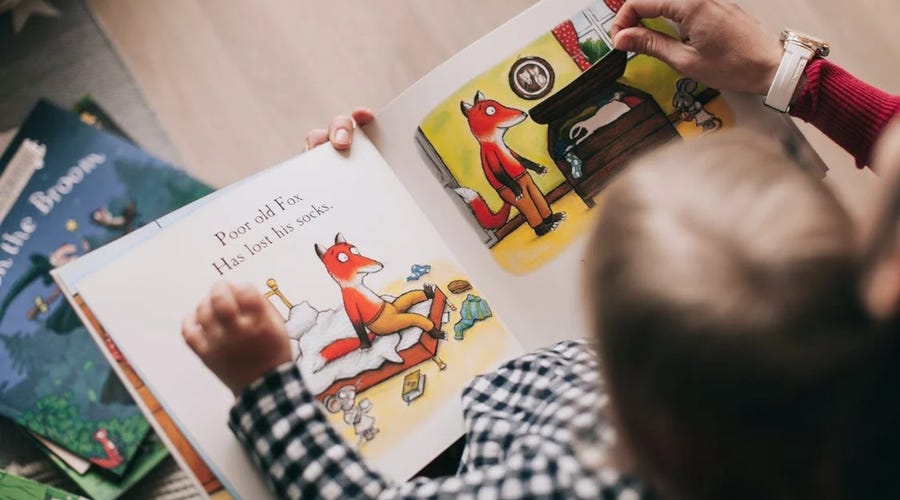Cuentos cortos en inglés – 5 diferentes para comenzar
A continuación encontrarás cinco diferentes cuentos cortos con los cuales los niños podrán comenzar a practicar su lectura, pronunciación y compresión lectora:
·The Tortoise and the Hare
Once upon a time, there was a tortoise and a hare who were always arguing about who was faster. One day, they decided to have a race to see who could cross the finish line first.
The hare started off quickly, and the tortoise was soon far behind. The hare decided to take a nap under a tree, thinking that the tortoise would never be able to catch up.
But the tortoise kept going, slowly but surely. He never gave up, and eventually he crossed the finish line, just ahead of the hare.
The moral of the story is that slow and steady wins the race.
·The Three Little Pigs
Once upon a time, there were three little pigs who lived with their mother. One day, their mother told them that they were old enough to go out into the world and build their own houses.
The first little pig built a house of straw. The second little pig built a house of sticks. But the third little pig built a house of bricks.
A big bad wolf came to the first little pig's house and huffed and puffed and blew the house down. The first little pig ran to the second little pig's house, but the big bad wolf huffed and puffed and blew that house down too.
The two little pigs ran to the third little pig's house, but the big bad wolf could not blow it down. The wolf tried to climb up the chimney, but the third little pig boiled a big pot of water and the wolf fell in and died.
The three little pigs lived happily ever after in the house of bricks.
·The Ugly Duckling
Once upon a time, there was an ugly duckling who lived with his mother and his brothers and sisters. The duckling was different from all the other ducks. He was big and awkward, and his feathers were a strange color.
The other ducks made fun of the ugly duckling. They called him names and said that he didn't belong. The ugly duckling was very sad. He didn't know why he was so different.
One day, the ugly duckling flew away from the farm. He flew and flew until he came to a lake. He saw a flock of beautiful swans swimming in the lake. The ugly duckling was afraid to go near them, but he couldn't help but watch them.
As he watched the swans, he noticed that he looked a lot like them. He had the same long neck and the same graceful movements. The ugly duckling realized that he wasn't ugly at all. He was just a swan.
The ugly duckling joined the flock of swans, and they welcomed him with open wings. The ugly duckling was finally home.
·The Little Engine That Could
Once upon a time, there was a little engine that was tasked with pulling a long train of cars over a mountain. The other engines were afraid to do it, but the little engine said, "I think I can. I think I can."
The little engine started up the mountain, and it was hard work. The train was heavy, and the mountain was steep. But the little engine kept going, and it kept saying, "I think I can. I think I can."
Finally, the little engine reached the top of the mountain. The other engines were amazed, and they all cheered for the little engine.
The moral of the story is that if you believe in yourself, you can achieve anything.

.webp?auto=webp&format=pjpg&quality=80&width=464&height=464&fit=crop&crop=464:260,smart)



